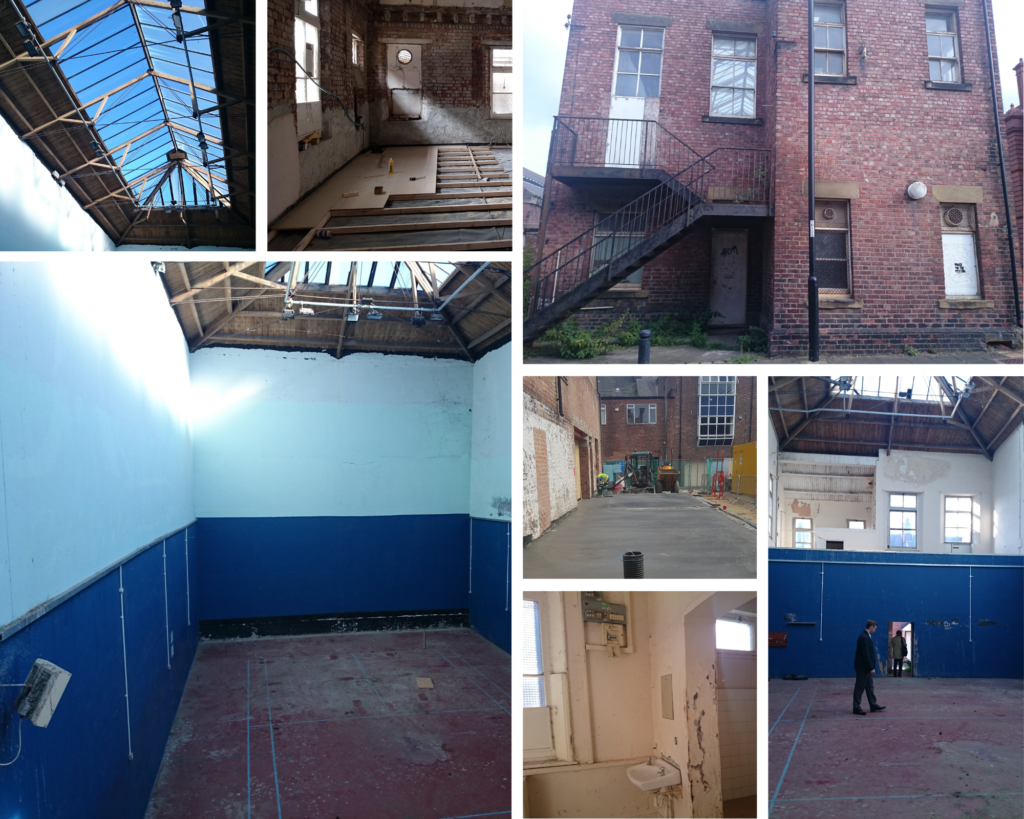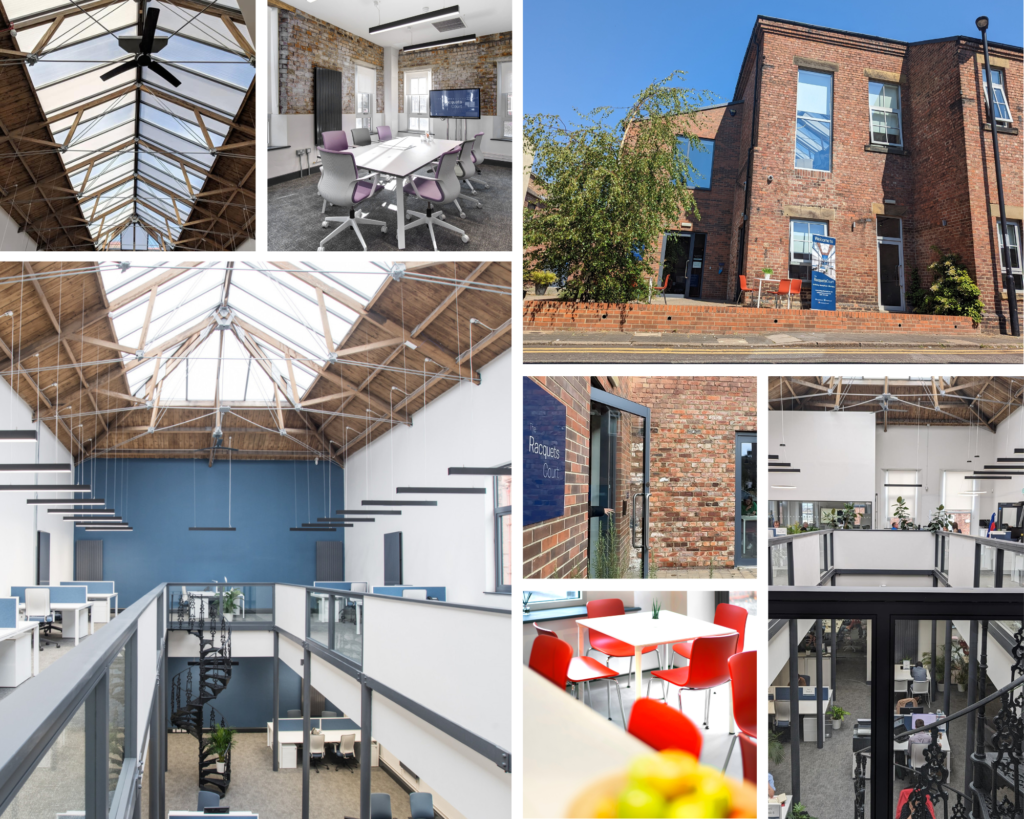The Story So Far….
In celebration of our 5th birthday, we would like to share the story of The Racquets Court with you in 5(ish) minutes.
In 2017 Gavurin, our data company in the North East of England decided that, with promising growth, there was an opportunity to purchase a building of its very own. Various options were available: one based on the Gateshead side of the swing bridge, one an old library on Scotswood Road. Yet, it was a former sports court in Newcastle city centre that really captured the imagination. The old building, which had stood empty for many years, was perfect.
Newcastle’s racquets court was originally built in 1888 “in order that Newcastle might not be behind other large towns”, the building was a haven for racquet enthusiasts, requiring a mere two guineas for membership (this is around £210 today – according to the Bank of England’s inflation calculator).
How to play Racquets
Racquets (rackets) was played in a 30-by-60 foot enclosed court, with a ceiling at least 30 feet high. The walls and floor of the court are made of smooth stone and generally dark in colour to contrast with the white ball. Read more
The subsequent chapters of the buildings history remain elusive, marked only by a sign stating ‘Northumberland Table Tennis Club’.
When we acquired the building from Newcastle City Council, it stood as little more than a cavernous shell. There was a small viewing platform, the beautiful spiral staircase, a striking glass ceiling, and basic amenities constituted it’s humble inventory. Undeterred our vision became clear – to create a beautiful workspace which combines state-of-the-art technology, housed in a truly unique and historical venue.
Preserving the buildings history proved both challenging and rewarding. The original brickwork, the staircase, the weathered walls bearing the scars of countless racquetball impacts – all bore witness to a bygone era.
The ceiling had to be modernised, reinforced and the old panes of glass replaced. We even added in self-opening panels. The staircase, while stunning, didn’t comply with modern building regulations, so was carefully repaired and relocated within the building and now used as a stunning ornamental feature adorned with a variety of plants (and decorated at Christmas).
We added a small extension to house the entrance area, main staircase, essential amenities, and a cosy private office complimented by a rooftop terrace. The newly added first floor became home to a number of work and meeting spaces.
Throughout the process, our data company evolved and our vision for the building grew. We saw potential in the space and knew we could now share this with likeminded organisations. Thus, The Racquets Court, the coworking space, was born – a hub for innovation and collaboration.
In May 2019 it was finally time to open our doors as we held our launch event. Officially opened by Nick Forbes, then leader of Newcastle City Council, and attended by local businesses, NE1, Newcastle & Northumbria Universities. We also welcomed the contractors who had so efficiently delivered the project –IDP (our architects), Elliott Associates (our quantity surveyors) and Tolent (our building contractors). Tolent very sadly is no longer around – a very significant loss to the North East business community.
“Newcastle was home to the first industrial revolution and we need to be a part of the next industrial revolution too. What you’re achieving here is, I hope, a part of a bigger narrative for the rebirth and regeneration of Newcastle as a major global city. The transformation if this building symbolizes the rebirth and regeneration of Newcastle.” – Nick Forbes
With such a promising start, no one could have foreseen what came next. The world was changing and in the March of 2020 we, like everyone else, went into lockdown. Being a new, small, independent business, the pandemic hit us hard, but we made it through. The world on the other side had changed – a world now driven by the flexibility of remote work, where coworking spaces flourished in the wake of traditional office lets.
With more and more businesses prioritising the wellbeing of their staff and the use of hybrid and flexible working as a recruitment and retention tool, the rise of coworking space has seen our space flourish.




